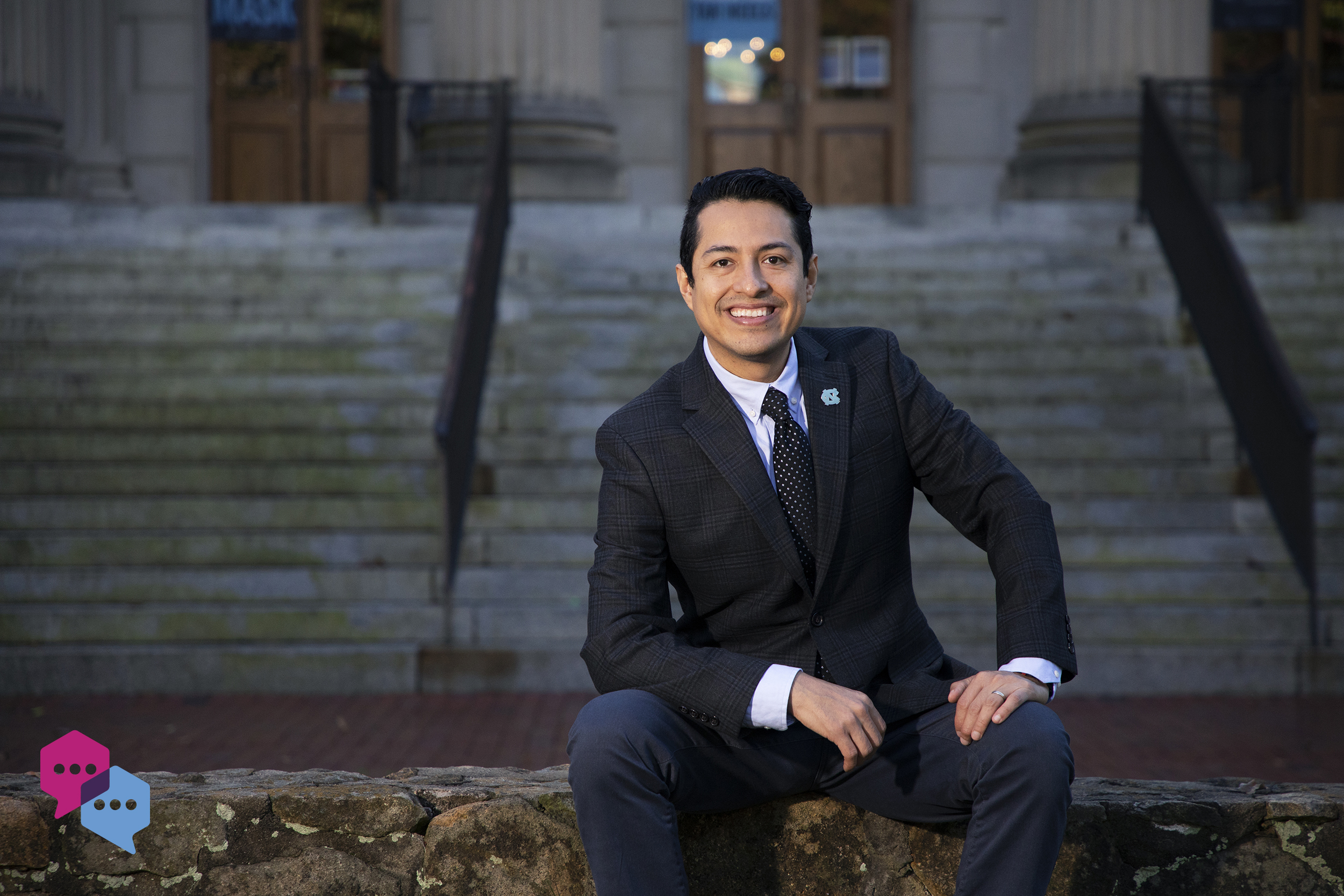Q: When you were a child, what was your response to this question: “What do you want to be when you grow up?”
A: I immigrated to the U.S. from Mexico when I was 5. I spent most of my childhood in rural North Carolina. My family was more focused on survival than on dreams for my future. In the early years, I recall my dad hoping that my three siblings and I would learn enough English to get better jobs than he and my mom had as chicken workers. The more typical options that children might cite — policeman, doctor, lawyer — seemed out of the question for me, though later in my teens I did dream of being a professional soccer player. I am so glad you asked this because it helps us think about questions of privilege and how kids of different backgrounds may lack certain resources and even the opportunity to dream.
Q: Share the pivotal moment in your life that helped you choose your field of study.
A: Buying books was a luxury our family could not afford. I remember seeing the book sales in elementary school and longing to buy one of those many Berenstain Bears books. Then in high school, I discovered thrift stores and their amazing book sections, and I would buy and read as many books as I could. Much of what I found was not “high” literature, but along with Tom Clancy and John Grisham I also discovered the worlds of Cisneros, Alvarez, Twain, Steinbeck, and others. I lined the books up on my shelves and began to see that literature could help me dream — or at least transcend the world for a time. Eventually, I discovered that literature could offer me numerous lenses to understand and respond to the worlds around me. My research in Latina/o studies presses me to continually reevaluate my knowledge.
My early appreciation for literature’s importance in life stems, in part, from conversations shared with the man who would years later become my father-in-law. Ken and I would spend evenings by the fire discussing philosophy and literature, and I learned from him the joy of “getting lost in ideas.” Some years later, while in undergraduate school, my professor Janet Ellerby declared in a memoir class that “literature is supposed to make us better human beings,” and I was compelled by her words to seek a career in literature. As a professor now, I strive to help my students similarly find inspiration in literature and to understand its power on readers and the world.

Ramírez with his wife, Kyra, and two children — Milo and Camila — in front of the Old Well on UNC’s campus.
Q: Tell us about a time you encountered a tricky problem. How did you handle it and what did you learn from it?
A: I have found that support and understanding are key to navigating life, especially in the current climate, and I seek to offer that to my students and colleagues as much as I can. I don’t pretend to be able to solve all problems, but I think one really good way of helping others is to closely listen to them before offering advice — and there may very well be no need for advice in the end. I allow them to talk through their feelings to better understand their concerns and special needs. This is a roundabout way of saying: Listen to others before jumping in to solve problems. We can help so much by just listening.
Q: Describe your research in 5 words.
A: Latinx faces in laboring spaces.
Q: What are your passions outside of research?
A: I love to paint, sketch, and write fiction. In the process of doing so, I get to think about some of my research, but also move outside of it and explore new methods for understanding the world and creating meaning. I love my family and sharing moments with them. My spouse, Kyra, and I could discuss literature and life forever, and my children’s boundless and intractable curiosity and creativity keep me grounded — and constantly surprised.
I often read and tell Milo and Camila stories by and histories about the Latinx people I study. In return, my children have introduced me to the fantastic and sometimes bizarre worlds of David Walliams, Roald Dahl, Astrid Lindgren, Enid Blyton, and so many other children’s classics. At 8, Milo, a poet and novelist, has already declared that his dream is to be a fiction writer, and Camila is an incredibly prolific picture book writer in her own right.


